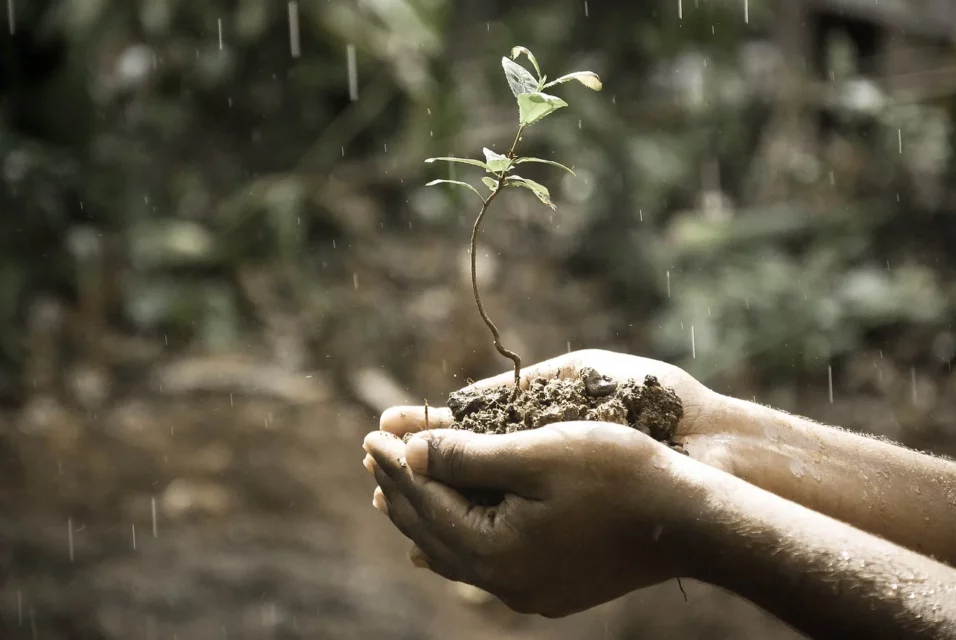The residents of Hakimsinan—a forest-fringed village in West Bengal’s Bankura district—have witnessed the deterioration of their local soil over time. The uplands, where indigenous crops such as grass (kodo), maize, and pulses (biri kolai) were once grown, have become uncultivable through the years. According to the villagers, the degradation of the local land and ecology were caused by changes in agricultural processes.
The villagers say that their ancestors sowed pre-germinated paddy seeds in dry land; this process was called direct seeding rice (DSR) or thupi/chali dhaan. Eventually, the practice of paddy transplantation was adopted in the region as it was common in the neighbouring districts of Burdwan and Hoogly, where farmers from Bankura migrated as agricultural labourers.
Transplanting requires the preparation of nurseries, where the paddy seeds are first sown and raised into young plants. These seedlings are later uprooted and transplanted on puddled fields that need to be irrigated almost daily (if there are no rains) to maintain a water depth of 4–5 cm. While Burdwan and Hoogly were suited to the practice of transplantation due to their abundance of water and plain topography, Bankura’s erratic rainfall and sloped topography exacerbated the practice’s negative impact.
The scarcity of rainfall often resulted in the death of the seedlings, which delayed the crop cycle and impacted the production of the crop. Additionally, repeated puddling activity caused the land to lose its water retention capacity.
During this period, Bankura also saw a change in the choice of paddy varieties grown by the farmers. They embraced high-yielding varieties of paddy seeds instead of indigenous seeds such as bhootmuri, badshabhog, kalochita, and sitasal.
While the indigenous seeds were less water intensive, could be stocked for a long period, and thrived on organic manure, the new seeds needed chemical fertilisers, which reduced the productivity of the soil over time.
Behula, a resident of a village in Bankura, says, “We are the ones who have exploited our lands to fulfil our own needs. Today, the land has actually given up, but our need is not yet fulfilled.”
Saranmoyee Kar works as a team coordinator with PRADAN in West Bengal.
This article was first published in IDR Online
—
Stay updated with all the insights.
Navigate news, 1 email day.
Subscribe to Qrius

